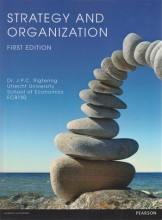Nationalism and political reform, 1850-1880 - german unification, 1850-1871
6 important questions on Nationalism and political reform, 1850-1880 - german unification, 1850-1871
Otto von bismarck?
What choice did bismarck offer the liberals?
How did bismarck proceed to unify germany?
- Higher grades + faster learning
- Never study anything twice
- 100% sure, 100% understanding
What political circumstances allowed for these wars to be won?
What did the founding document of new germany provide?
the reichstag was an elected body, elected by male suffrage
What did the unification of Germany mean for the balance of power?
The question on the page originate from the summary of the following study material:
- A unique study and practice tool
- Never study anything twice again
- Get the grades you hope for
- 100% sure, 100% understanding
































